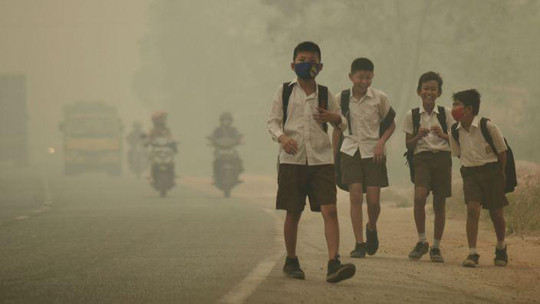New Delhi, Mar 6: The World Health Organisation (WHO) on Monday said that each year environmental pollutants claim the lives of 1.7 million children under five.

The new numbers equate to these unhealthy environments being the cause of one in four deaths of children one month to five years old.
"A polluted environment is a deadly one - particularly for young children," says Dr Margaret Chan, WHO Director-General. "Their developing organs and immune systems, and smaller bodies and airways, make them especially vulnerable to dirty air and water."
The causes include unsafe water, lack of sanitation, poor hygiene practices and indoor and outdoor pollution, as well as injuries.
"Their developing organs and immune systems, and smaller bodies and airways, make them especially vulnerable to dirty air and water."
Infants exposed to indoor or outdoor air pollution, including secondhand smoke, have an increased risk of pneumonia during childhood as well as an increased risk of chronic respiratory diseases - such as asthma - for the rest of their lives, the report stated.
New WHO report reveals that a large portion of the most common causes of death among children aged 1 month to 5 years - diarrhoea, malaria and pneumonia - are preventable by interventions known to reduce environmental risks, such as access to safe water and clean cooking fuels.
The global body also highlighted the increased risk of heart disease, stroke and cancer from exposure to air pollution.
It said that reducing air pollution inside and outside households, improving safe water and sanitation and improving hygiene (including in health facilities where women give birth), protecting pregnant women from second-hand tobacco smoke, and building safer environments, can prevent children’s deaths and diseases.






Comments
Add new comment